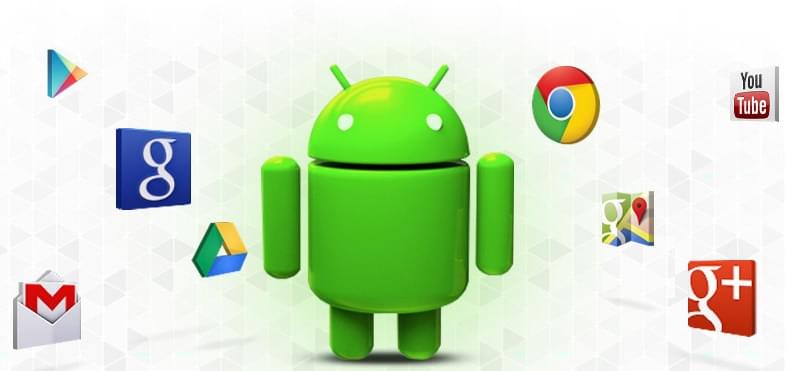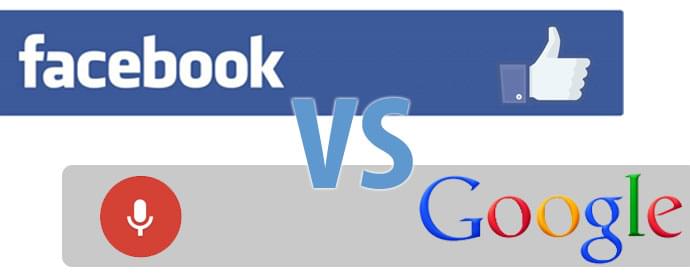Facebook’s newest application, Home, looks set to pose a serious strain on the social media mogul’s relationship with Google. Designed for Android devices, Home comes chock full with a laundry list of extensive functionalities and features—i.e. chat heads, notifications, cover feed, and more. Despite this, however, Home essentially is a reconfiguration of users’ standard home screens with a fully immersive Facebook experience. What does this mean exactly? Facebook Home takes over the front screen of users’ devices and fills it with the user’s news feeds, photos, status updates, notifications, and more. That being said, Home essentially muscles out Google’s presence on Android devices.
Structurally, Home will utilize the Android Operating System devices currently run on—which was created by Google. Currently, Google allows both developers and phone makers to alter and modify its Android Operating system. That being said, Facebook Home looks to take advantage of this by utilizing Google’s operating system and repurposing it with new social media features; however, in reconfiguring the Android OS, the Home application maintains devices’ compatibility with Android apps—including anything downloaded/installed from the Google Play Store.
This is where things get a bit muddy. In using familiar technology, Home’s design shifts users’ focus away from Google and towards Facebook. “The new Home application—which runs on Google’s Android operating system—basically makes the Facebook platform the center of the user’s smartphone, drawing the user into the Facebook ecosystem and diverting the user away from Google’s services and its advertisements,” states Cradie Thompson of CNBC. As stated above, Google is fully immersed in the Android Platform; therefore, the restructuring of Android devices could spell trouble.
 Android is one of (if not) the most popular smartphone softwares in the world. Through a ton of advertisements, apps, and services, Google has turned great success. That being said, the web mogul gives away the operating system in hopes of steering users towards their services—i.e. Google Play Store, Gmail, and Google Maps. Though this has been a successful formula in the past, Facebook’s new software/application looks to shift the focus of these devices towards their own ads and services—which could cause a substantial cut in Google’s profits and popularity. As stated above, Google makes a profit from ads and other avenues. Now, Facebook looks to cut in with this revenue source.
Android is one of (if not) the most popular smartphone softwares in the world. Through a ton of advertisements, apps, and services, Google has turned great success. That being said, the web mogul gives away the operating system in hopes of steering users towards their services—i.e. Google Play Store, Gmail, and Google Maps. Though this has been a successful formula in the past, Facebook’s new software/application looks to shift the focus of these devices towards their own ads and services—which could cause a substantial cut in Google’s profits and popularity. As stated above, Google makes a profit from ads and other avenues. Now, Facebook looks to cut in with this revenue source.
While mobile ads are currently considered to be a small market, it doesn’t seem as if they will stay as such. Research firm, eMarketer, forecasts tremendous growth for mobile ads on the horizon. With that comes increased profits. Last year saw spending grow 178% to $4.11 billion; this year spending is expected to grow another 77% to $7.29 billion. Of this percentage, Google Inc. is expected to take nearly half. On the other end of this, Facebook is expected to rake in 30% of mobile ad dollars in 2013. While Google currently lords approximately 20% more than Facebook, Home looks set to change this. Aside from mobile ads, Facebook has already outmatched Google in display ads—earning 21% in 2012 while Google managed 17%. With that, the 2013 forecast doesn’t look bright either as Facebook is projected to take 28% and Google 19%.
While Facebook’s application doesn’t appear to bode well for Google, nothing is certain just yet. It’s important to note that this isn’t the first time another Internet company has commandeered/co-opted Android. For example, both Amazon.com Inc and Barnes and Noble Inc. run their own versions of Android on their tablet devices. In doing so, both companies strip Android of their Google services and replace them with their own brand equivalents. While these devices are popular they haven’t spelt imminent destruction or disaster for Google. Also, these co-opted versions work outside of Google altogether. Inversely, Home is still equipped with Google apps—i.e. Maps and the Play Store. With this in mind, Google can perhaps be a bit more optimistic.
 Optimistic or not, Home will definitely call on Google to up their game. With the app’s release, Google will undoubtedly be under a ton of pressure to find new ways to attract users. “Home may increase the pressure on Google to find ways to get people to spend more time on its Plus social network, which so far hasn’t been as magnetic as Facebook’s hangout,” states J.P Morgan Analyst, Doug Anmuth. Aside from social networking, Facebook’s implementing of communicative technologies (i.e VoIP services) could lead to a drop-off in use of Google services such as Gmail, G Chat, and Google Voice. While speculation runs wild, Home’s impact, as well as Google’s response, remains unclear. While Google will definitely need some sort of fresh breathe, it’s possible that Facebook’s app could fail, or be otherwise ineffective. The point is, no one knows for sure. While Google shouldn’t put all their eggs in one basket, it might not be time to panic just yet.
Optimistic or not, Home will definitely call on Google to up their game. With the app’s release, Google will undoubtedly be under a ton of pressure to find new ways to attract users. “Home may increase the pressure on Google to find ways to get people to spend more time on its Plus social network, which so far hasn’t been as magnetic as Facebook’s hangout,” states J.P Morgan Analyst, Doug Anmuth. Aside from social networking, Facebook’s implementing of communicative technologies (i.e VoIP services) could lead to a drop-off in use of Google services such as Gmail, G Chat, and Google Voice. While speculation runs wild, Home’s impact, as well as Google’s response, remains unclear. While Google will definitely need some sort of fresh breathe, it’s possible that Facebook’s app could fail, or be otherwise ineffective. The point is, no one knows for sure. While Google shouldn’t put all their eggs in one basket, it might not be time to panic just yet.
Home will be available for download in the U.S. April 12, and will be available to users of Android Jelly Bean and Ice Cream Sandwich, but not Gingerbread. For more impatient users, a beta version of Home has leaked, and is currently available for some devices; however, it may not be fully functional—i.e. no chat heads.








